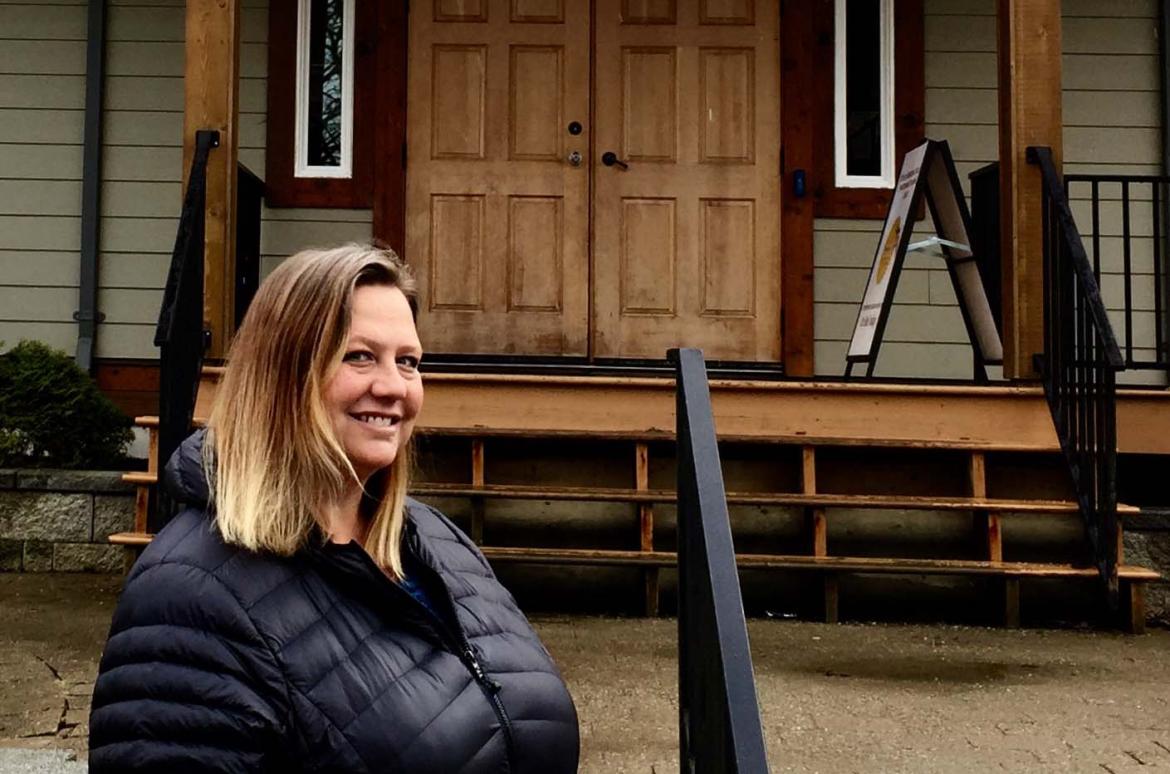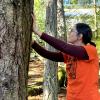
Lory Oberst is using what she learned in VIU's First Nations Housing Manager program to help make positive changes as Skwah First Nation's Housing Manager.
March 9, 2017 - 2:00pm
The program is one of only two of its kind in Canada, and the only one that’s online and available for students nationwide
When Lory Oberst took on the role of Housing Manager for Skwah First Nation in Chilliwack almost six years ago, she had to learn the job as she went.
With a background in management and administration, Oberst was given a portfolio of 15 rental homes on the reserve. She also looks after finding funding to renovate privately owned homes and is the acting lands manager.
“It was a steep learning curve, which was a wonderful challenge, but hard,” says Oberst. “I had skills that were transferable, but I still had to learn to deal with government and First Nations policies and procedures. How slowly things work with the government was a real learning experience for me.”
When Oberst heard about Vancouver Island University’s (VIU’s) First Nations Housing Manager Certificate Program two years ago, which is run out of the University’s Cowichan Campus, she jumped at the chance to get some formal training.
“I wanted to collect information to bring back to the community, and learn ways to improve the way I’ve been doing things,” she explains. “I’ve never had any formal housing management training.”
The First Nations Housing Manager Certificate Program, developed by VIU in collaboration with the Canada Mortgage and Housing Corporation (CMHC), trains First Nations housing managers who work with on-reserve housing programs. The program, designed to be completed over the course of two years while students are still working, is made up of six online courses that help managers maintain affordable, healthy, high-quality and well-maintained housing in their communities. The first course – Introduction to Housing Management – is offered in a continuous intake format.
Housing managers on First Nations reserves are charged with managing the rental housing stock for the community. They handle the maintenance and renovations of rental units, collect the rent, ensure mortgages are covered, create policies around housing, and manage the tenants and any new construction. They often do all of this without any formal training because first of all, it’s not typically a funded position, so people are often doing it off the sides of their desks or paid a minimal amount of money, and secondly, VIU offers the only online program accessible to learners across the country, says Dr. Sylvia Olsen, program co-developer and primary instructor.
“There is no formal housing delivery system for reserves – each First Nation figures out how to do it on its own,” she says. “It just makes sense that we should get some education organized around it.”
Dr. Olsen, whose recently completed PhD from the University of Victoria delved into the history of on-reserve government housing programs, started developing the First Nations Housing Manager program about a decade ago with VIU, and funding support from the CMHC. This initiative developed the Introduction to Housing Management course, which piloted in three locations in British Columbia as well as in Moncton, New Brunswick. Further fundraising allowed for development of the five remaining courses in the certificate, which is now fully online. The program’s first graduates received their certificates in 2016.
The VIU program attracts First Nations housing managers from across the country. The students interact via an online learning management system and discussion forums – a feature that Oberst found extremely helpful.
“Being able to discuss situations together and see how others handled certain situations was a tremendous learning experience for me,” she says. “Looking at things through other eyes was an amazing way for me to realign my way of looking at situations.”
The program has also helped Oberst deal with sensitive situations on the reserve, such as evictions and who should pay for certain repairs.
“I feel like I have more knowledge at my fingertips now and I’m able to find better solutions,” she says. “This program has reframed my viewpoint so I can facilitate and interact with more insight, understanding and practical solutions. A program like this is also important to ensure all housing managers have uniform procedures so we are better able to do our jobs for the community. There’s less wondering if we are doing the right thing or not. It has brought housing managers together, which is so great because we tend to be really isolated. The more we talk and share, the better – there’s no need to reinvent the wheel.”
Oberst has even started a Facebook group for housing managers. She posted her graduation certificate online urging those who have not had the training to sign up.
“Most housing managers wear more than one hat, so it’s tough to try and find the time and the balance for further education, but this program is worth it, both to help you do your job better and to make positive changes for your communities,” she says. “Right now, I’m using a lot of the material we discussed in the course to make changes to our housing policy that will make it stronger.”
To learn more, visit the First Nations Housing Manager program website.
-30-
MEDIA CONTACT:
Jenn McGarrigle, Communications Officer, Vancouver Island University
P: 250.740.6559 | C: 250.619.6860 | E: jenn.mcgarrigle@viu.ca | T: @VIUNews
Tags: Teaching and Learning






